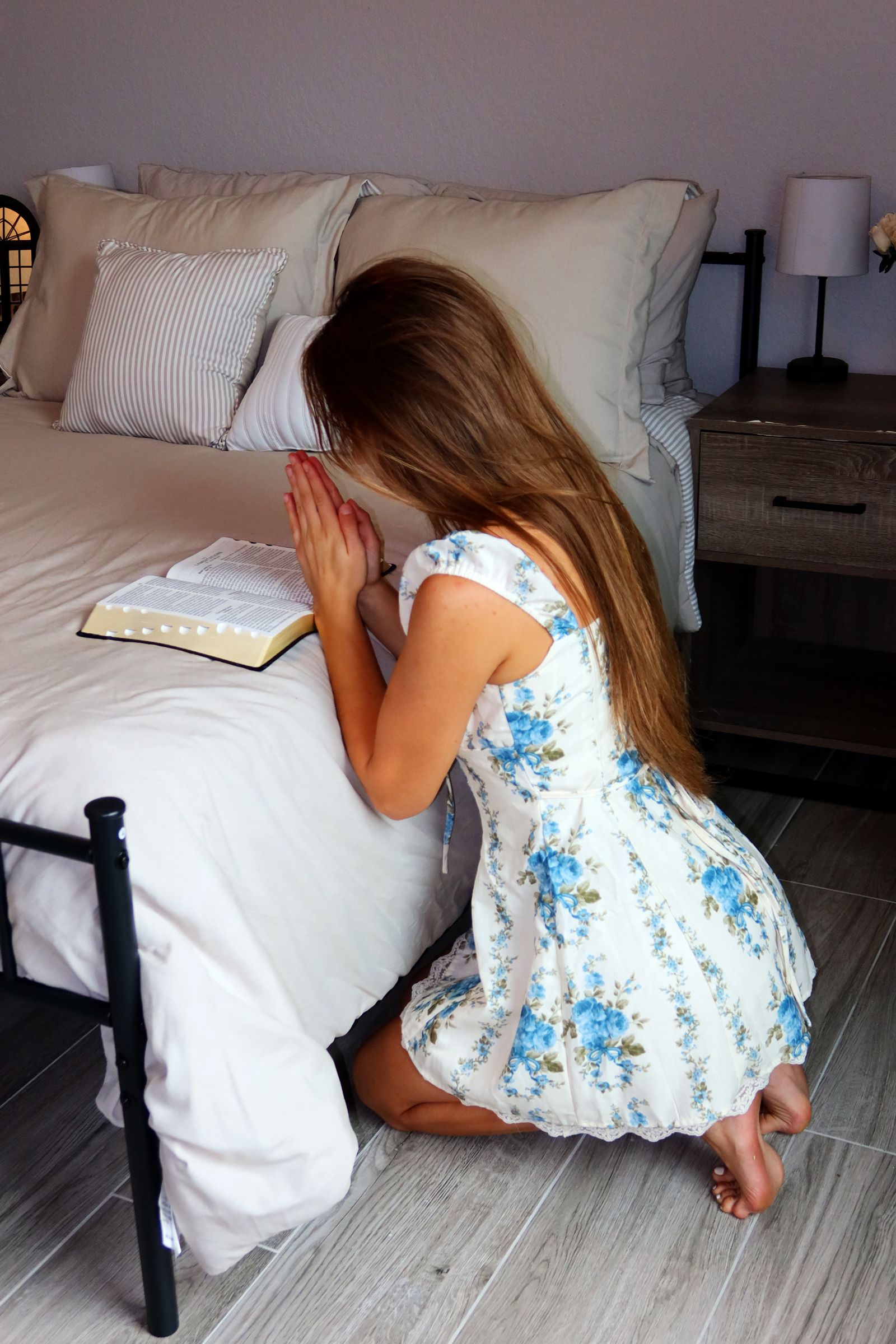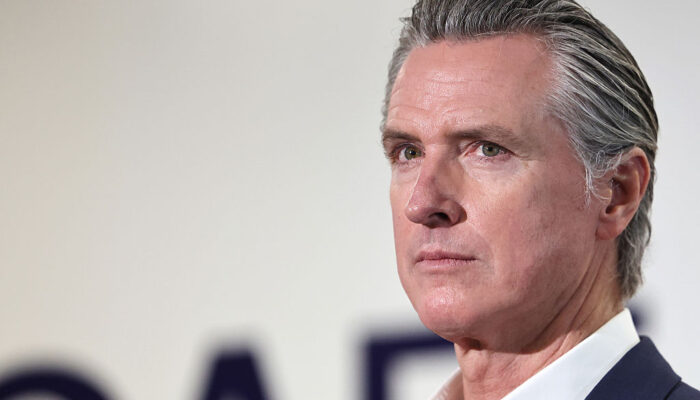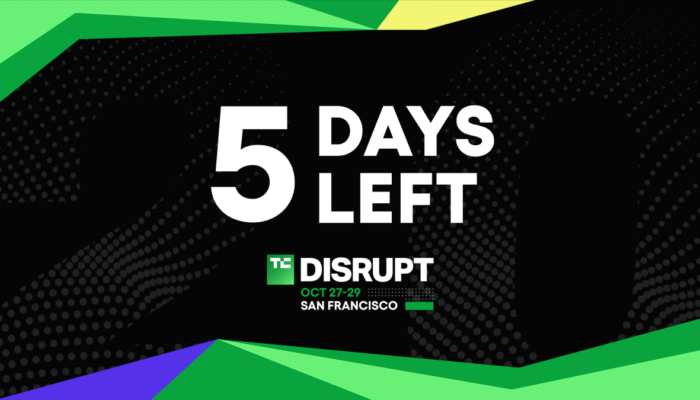Anya Lacey is aware of the oxymoron that comes with being an OnlyFans creator while aspiring to be a trad wife.
When the 19-year-old Florida-based creator decided to get serious about dating this year, she ran into a wall. Either a lot of conservative men are “immediately turned off by what I do,” she says of being an OnlyFans creator, or the men she met on dating apps weren’t all that serious about commitment. “It’s a video game to them.”
Those experiences led Lacey to create dateanya.com, a website with two clear objectives. The first was to find Lacey a husband (users can fill out a “Date Me” application). The second—and this very much seems to be its larger aim—was for the site to serve as a kind of relationship roadmap for conservative singles serious about finding love. Billed as “America-First Dating,” the site provides suggestions for “non-negotiables” (“secure borders, secure families”) as well as dating tips for women (“let him drive the date; you drive the conversation”) and men (“exclusivity before intimacy”).
“Conservatism is really associated with men and masculine energy, and that’s who was leading the industry,” Lacey says. “But now you have a lot of women coming out of the woodwork.”
Lacey is part of an expanding network of women influencers, creators, and media personalities who represent different factions of the conservative movement—spanning faith and flag moderates to MAGA fanatics—jockeying for a larger stake in the dating zeitgeist. Some are using their platform to reclaim the narrative around traditional relationships, one they say has been poisoned by feminist brainwashing and an age of endless swipes. Just as the manosphere has shaped the outlook of young conservative men through chat-casts, rallying a generation around alternative science and hypermasculinity, the rise of female-led rightwing media creators—sometimes called the “womanosphere”—are helping to shape the opinions of young conservative women everywhere.
But even as conservatives are reclaiming the debate around modern dating, coasting on the momentum of Trump 2.0, there are noticeable fractures and hypocrisies in their approaches.
On the podcast Culture Apothecary, Turning Point USA’s Alex Clark educates women about optimal fertility health and well-being. In an episode of Relatable titled “Be a Godly Woman, Not Just a Trad Wife,” host Allie Beth Stuckey discusses the appropriation of the trad wife trend, saying it “can be a great thing to aspire to” but Christian motherhood is “not just an aesthetic.” More recently, in response to polycule family structures, Stuckey noted that “the sexual revolution is reaching new lows.” Much of what the women discuss—on marriage, faith, and the importance of childbearing—dovetails with the agenda of the Trump administration.
On social media, however, where Lacey has more than 1 million followers between TikTok and Instagram, she often straddles her conservatism with a wink and a smile. In one video, Lacey jokes about the consequences of not performing oral sex on your partner. In the next, she’s prancing through a green meadow declaring love for “my bible,” sundresses, and conservative men.
Still, as the womanosphere grows louder, its influence is creating a less stigmatized environment for singles who no longer feel the shame of their values. “Of course that trickles down into the dating scene as well,” says right-wing influencer Debra Lea of the cultural shift, who adds that the “the popularity of monogamy, marriage, and starting a family is growing far beyond just the conservative movement.”
Though she hasn’t prioritized finding a partner, Lea, 25, has dated a range of conservative men over the last few years. In the post-Biden era of young romance, she’s noticed a key difference; “politics seem to be more commonly discussed both on and before dates.” The hardcore moderates always “bring out my ultraconservative side,” she says. “I would never marry or seriously date somebody unaligned with me politically, but I believe there are many more important factors to align on, such as religion, healthy lifestyle, and hobbies.”
The conservative dating revival comes as romantic relationship patterns are steadily shifting. Americans are having a record low amount of sex, according to a report by the Institute for Family Studies. Marriage is also on the decline. Meanwhile, dating app fatigue seems to be at an all-time high.
Lauren Kenzie, a 23-year-old social media manager from Fresno, California who believes it should be illegal to burn the American flag, often uses TikTok to broadcast what she wants, and doesn’t want, in a partner. In one post, reciting audio from Kesha’s 2010 song “Grow a Pear,” she suggests she could never date liberal men because they have “a vag.” (The song is a common choice among young single conservatives on the platform, who use it to troll men with progressive values.) “I am very straightforward on what I believe in,” Kenzie says, “and if you don’t believe in what I believe then it’s not gonna work out.”
Politics have always played an important role in who people date, but especially so for conservatives, who have often faced more pushback than liberals as dating apps replaced the analog meet-cute. Though right-wing apps like Patrio, Righter, and Donald Daters launched around Trump’s first term, they have struggled, even now, to find wide user ship. That has forced conservatives to search for love on the major platforms, where they weren’t always welcome.
On TikTok, Republicans have been mocked for hiding behind “moderate” or “not political” labels, or removing them altogether (certain apps, like Hinge and Bumble, let users add party affiliations to their bio). Left-leaning women have stressed that being a Trumpie signals immediate red flags for a potential partner. “She doesn’t have to worry about if you’re a misogynist, you voted for one,” one TikTok user noted, after a contestant on The Date Night Podcast was dumped for revealing just that.
But today, young conservatives seem more emboldened to speak out. In July, after attending a Turning Point USA event, health performance coach Julian Becerra uploaded a video extolling the values of traditional relationships where “the man is the head of the household and the woman isn’t required to go work and climb some crazy, bullshit corporate ladder and report to a male boss. She can raise a family like how it’s intended to be.” The video garnered over 1,600 comments.
Lea calls this moment a revival era where women can once again vocalize their dreams of being a stay at home mom without feeling any guilt or shame. “[It was] one of the most important jobs in the world, and since the 1960s and the rise of the feminist movement, society has looked down on stay-at-home moms,” Lea says. “There was bound to be a cultural rebound to tradition.” Despite her take on this, Lea herself is a content creator who produces multiple videos a week on everything from ICE-led deportations to why she wants to #MakeAmericaHotAgain.
Some academics suggest that the promotion of a domestic utopia during eras of draconian governance serves an essential purpose. In Mothers in the Fatherland: Women, the Family, and Nazi Politics, historian Claudia Koonz argues that in authoritarian regimes of the past, women were critical in shaping how society coped with its new reality by spoon-feeding narratives of subordination and conformity. As “men preached race hate and virulent nationalism that threatened to destroy the morality on which civilization existed, women’s participation in the movement created an ersatz gloss of idealism,” Koonz wrote, adding that their role helped uphold an illusion of decency.
“I watch the Brett Cooper podcast a lot. She just had her baby. She has a beautiful husband and a beautiful home. She’s a really big voice for women right now,” Lacey says of the conservative influencer who is popular among Gen Z.
“I truly believe women of all political ideologies—except woke lefties who are too far gone from reality—are suffering the effects of the loneliness epidemic and are finally beginning to understand that marriage and children was always the solution,” Lea says. Studies have confirmed, however, men experience loneliness at a marginally higher rate than women, and often have a harder time seeking out support. And women are out-earning men in several US cities, according to a Pew Research Center analysis, which may explain why they are more selective when dating. Some studies have noted that unmarried women tend to be happier.
“Men want to marry feminine, attractive, and kind women whereas women want to marry strong, masculine, and hardworking men,” Lea says. “We spent the last few decades pretending this wasn’t the truth but now, with President Trump at the helm of our country and culture, the dating scene can return to what it’s always been: normal.”
But even “normal” is changing for conservatives.
Lacey is hopeful her website will yield results. Until then, she intends to make her living through OnlyFans; her content is a mix of solo and partner sex scenes (when Lacey does record with other people, it’s with one specific person). “Traditional is traditional, but tradition evolves. We’re in a new day and age,” she says. “Back then, traditional meant you could just survive off of one income.” That’s not possible anymore, she tells me, explaining that she’s happy to make this sacrifice now to build a stable future for her family, a dream that includes settling down on a ranch with a husband and three kids.
“Just because you’re filming videos and posting them doesn’t necessarily take you out of the traditional role,” she says. “To some extent, though, all of us fall short of our beliefs.”




